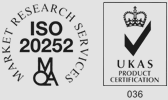Harmonisation

Global studies – one central agency or many local agencies?
Whilst there is an obvious cost saving to be made in selecting one location for all the telephone research, in terms of avoiding duplication of set-up and management fees, there are plenty of advantages in spreading the research over a number of different locations. For example, if you require volume interviewing in 30 countries over a very quick time-frame, not even Pexel Research Services will be able to help. The most interviewers in any language we can place is around 20-30, but if you multiply this by 30 countries, then our telephone unit isn’t big enough!
The real issue in deciding in whether to commission all the research to one location or many, is whether the methodology and quality controls at all the locations are identical. Even the cost savings from one route or the other are incidental. If your data isn’t robust, you’ve wasted your money.
It certainly helps if all the research can be managed from a single source. It means the management, training, reporting and monitoring are identical. It means the briefing provided by the client is only provided once, and therefore consistently applied to all markets. But different regions of the world require a different approach. Questionnaires which work in one country will not work as well in another. Some modifications are often recommended for individual markets in a multi-country study.
If you are commissioning individual markets to a wide spread of locations, then it is essential that the topline management of the study is centralised, either by the client or by one of the agencies selected for the work. Somebody needs to ensure that the conditions at all agencies are exactly the same. This means the sharing of the data collection platform (if at all possible), and access to live monitoring and audio recording of all the calls (not just some), from a central location.
Direct comparison of results for different markets is not always possible due to local culture. There is a large body of literature on comparison of responses in different markets to identical questions. And local research agencies often speak volubly at trade shows of their despair at centralised questionnaires which are wholly inappropriate for their own particular markets.
Commercial realities often constrain researchers from presenting the best possibly data. But commissioning clients (the Sponsors of the research) need to be made aware that the constraints they impose – often for the same commercial realities! – such as budget or timeframe, will have an impact on the outcome. Good research requires good planning and adequate budgets. We all get what we pay for.


